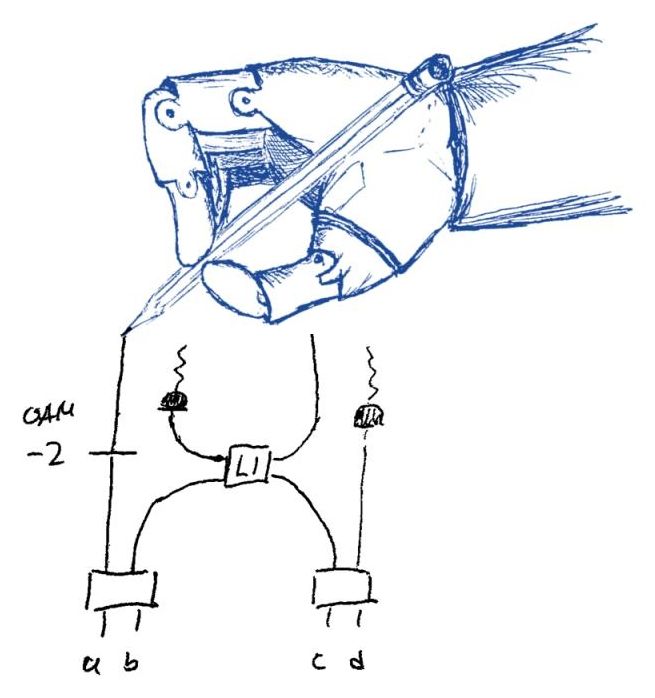Page 10851
Feb 25, 2016
Cybercrime warrior: Symantec’s Michael Brown
Posted by Karen Hurst in categories: business, cybercrime/malcode, internet
80 million cyber attacks per year — 400 every minute — but as many as 70 percent of them go undetected. And, these numbers are anticipated to go drastically higher now “Ransomware” is paying off for hackers.
Using the internet is a risk most businesses and individuals take for granted. But as more data is stored online, the world is becoming ever more vulnerable, the head of global internet security firm Symantec, Michael Brown, says.
Feb 25, 2016
“The limits to growth”, a prescient classic according to Nature | The Club of Rome
Posted by Odette Bohr Dienel in categories: environmental, sustainability
“While Nations gathered in Paris to negotiate an international agreement to limit greenhouse-gas emissions, Nature published a special issue “Paris Climate Talk” to cover the run-up to COP21. For this issue, Nature asked Adam Rome, environmental historian at the University of Delaware in Newark, to revisit the classics that first made sustainability a public issue in the 1960s and 1970s.”
Feb 25, 2016
Need To Beef Up India’s Cyber Security Policies And Mechanisms – Analysis
Posted by Karen Hurst in categories: cybercrime/malcode, finance, government, policy, robotics/AI
I luv it — India get’s it. You have to make sure that your IT foundation is solid first before unleashing things like AI. Connected AI requires a solid and secured infrastructure foundation 1st. In order for customers to buy into Cloud & the whole IoT, and connected AI set of products and services; the customer must feel that they can trust you fully.
By Jayadev Parida
Take a stock of the past, analyse the present cliché and frame a strategy for future. In the recent years, India’s approach to cyber security has experienced a shift from style to substance. Prime Minister Modi’s foreign policy has made various strong interventions on cyber security matters. Those interventions need to be materialised to manoeuvre the interest. Presumably, the Prime Minister Office (PMO) is likely to invest both political and capital energy to enhance a cautious cyber-strategy. A dedicated Division in the Indian Ministry of External Affairs (MEA) for cyber security is a value addition to that. In 2015, Minister of Communications and Information Technology in a written reply to the Lok Sabha stated that government allocated Rs 755 crore to combat cyber security threats over a period of five years. But, this financial outlay is quite negligible as the nature of threat is quite huge and unpredictable.
Continue reading “Need To Beef Up India’s Cyber Security Policies And Mechanisms – Analysis” »
Feb 25, 2016
China Mobile readies for migration from 4G to 5G
Posted by Karen Hurst in categories: business, internet
China goes 5G.
China Mobile has launched its 5G Joint Innovation Center project, the company said.
The company has set a business target of reaching 1.40 million TD-LTE base stations, selling 330 million 4G devices and expanding the 4G subscriber base to over 500 million by the end of 2016.
According to Shang Bing, Chairman of China Mobile, the company has deployed 1.10 million TD-LTE base stations as of the end of 2015, covering over 1.2 billion population and has achieved 4G roaming with 114 countries and regions; China Mobile sold 300 million TD-LTE devices in 2015, indicating the addition of more than 400 TD-LTE users every minute; China Mobile´s 4G subscriber base reached 340 million, accounting for about 30% of global number. Moreover, China Mobile has completed the deployment of carrier aggregation (CA) in over 300 cities and has commercialized VoLTE services in 100 cities.
Continue reading “China Mobile readies for migration from 4G to 5G” »
Feb 25, 2016
The exotic new weapons the Pentagon wants to deter Russia and China
Posted by Karen Hurst in categories: military, robotics/AI
US Military’s new toys to show off in front of China and Russia.
Little noticed amid the daily news bulletins about the Islamic State and Syria, the Pentagon has begun a push for exotic new weapons that can deter Russia and China.
Pentagon officials have started talking openly about using the latest tools of artificial intelligence and machine learning to create robot weapons, “human-machine teams” and enhanced, super-powered soldiers.
Continue reading “The exotic new weapons the Pentagon wants to deter Russia and China” »
Feb 25, 2016
Cops are asking Ancestry.com and 23andMe for their customers‘ DNA
Posted by Karen Hurst in categories: biotech/medical, privacy
I hope this isn’t true.
Ask your family members about their criminal plans before spitting in that vial.
Feb 25, 2016
WW3 Could Be Thermonuclear, With ‘Human-machine’ Teams
Posted by Karen Hurst in category: existential risks
United States, Russia, China remain the greatest threat against each other in what could be the next World War 3.
Feb 25, 2016
Rogue Terminator robots to become reality in just a few years… will hunt down and exterminate humans to reduce world population
Posted by Karen Hurst in categories: futurism, robotics/AI
There is only 2 avenues that “terminator robots” will exist: 1) criminals and terrorists have their followers/ pay some engineers to reprogram the robots and equip them to kill or explode themselves 2) a rogue nation like N. Korea decides to acquire (if not build) and regineer them to kill and deploys them on their neighbors, etc. The reality is robotics and humanoid robotics is even more complex; chances of this happening may be at a 20 to 30% range (if I was to take a guess).
So often Hollywood serves as a sort of idea test-bed for futuristic scientific concepts that often have a habit of becoming reality, but back in 1984 when The Terminator was released, hardly anyone believed that “killer robots” would someday become a reality.
But today, as robotics becomes a much more mature scientific field of study, the possibility that governments or private entities could “program” killer robots to take out certain targets or even entire populations is not so far-fetched anymore. In fact, it’s downright chilling.
Feb 25, 2016
Quantum experiments designed by machines
Posted by Karen Hurst in categories: computing, information science, quantum physics
Very nice.
Quantum physicist Mario Krenn and his colleagues in the group of Anton Zeilinger from the Faculty of Physics at the University of Vienna and the Austrian Academy of Sciences have developed an algorithm which designs new useful quantum experiments. As the computer does not rely on human intuition, it finds novel unfamiliar solutions. The research has just been published in the journal Physical Review Letters. The idea was developed when the physicists wanted to create new quantum states in the laboratory, but were unable to conceive of methods to do so. “After many unsuccessful attempts to come up with an experimental implementation, we came to the conclusion that our intuition about these phenomena seems to be wrong. We realized that in the end we were just trying random arrangements of quantum building blocks. And that is what a computer can do as well — but thousands of times faster”, explains Mario Krenn, PhD student in Anton Zeilinger’s group and first author research.
After a few hours of calculation, their algorithm — which they call Melvin — found the recipe to the question they were unable to solve, and its structure surprised them. Zeilinger says: “Suppose I want build an experiment realizing a specific quantum state I am interested in. Then humans intuitively consider setups reflecting the symmetries of the state. Yet Melvin found out that the most simple realization can be asymmetric and therefore counterintuitive. A human would probably never come up with that solution.”
Continue reading “Quantum experiments designed by machines” »















